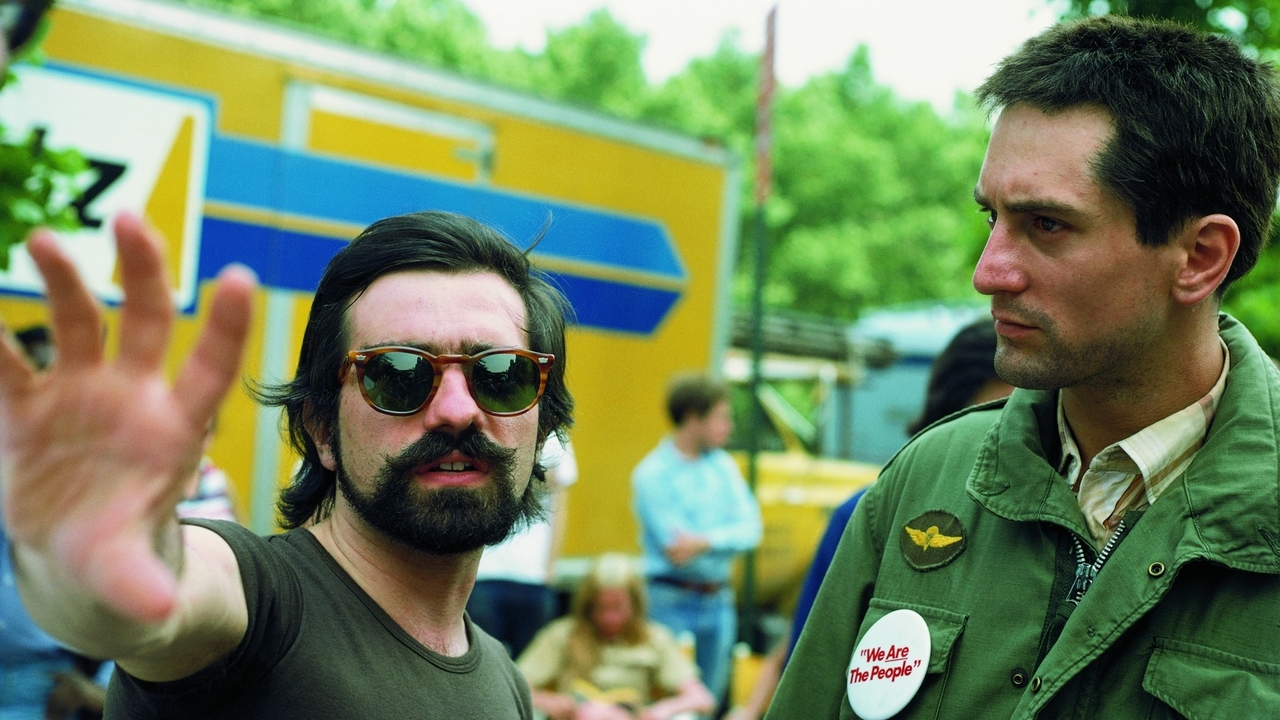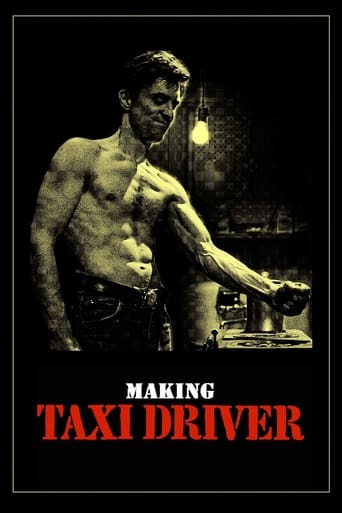

Making Taxi Driver (1999) **** (out of 4) The "making of" has become quite popular since DVD took off as fans want to hear their favorite stars and directors talk about their favorite films. This 71-minute documentary on the making of TAXI DRIVER is a rather important one because the majority of the main principles are on hand. Martin Scorsese, Robert DeNiro, Paul Schrader, Peter Boyle, Cybill Shepherd, Jodie Foster, Harvey Keitel, Michael Chapman and Albert Brooks are on hand telling about the making of the film and you know the film must be something very important for everyone to be willing to go in front of a camera and discuss it. Scorsese and Schrader kick things off talking about how they met and what their main inspirations were on the film. Schrader talks about his depression and his idea of a taxi being a metaphor for loneliness. Scorsese talks about trying to shop the film but not being able to find a backer until after MEAN STREETS was released. The actors all go into great details about their characters with DeNiro, always a tough interview, talking about what he saw in Travis and the preparations he went through to get into character. Foster is one of the most interesting in her stories of Scorsese asking her mother to let the 12-year-old actress play a prostitute. Foster also talks about the real prostitute that the director and writer used as the inspiration for the character. Just about everything you'd want to know about the film is discussed from various changes that were made and of course the infamous ending that had to have the color changed to avoid an X-rating. It seems clear that no one involved thought the film was going to be something that would eventually have mass appeal as they all seem shocked that so many people were able to connect with Travis. At 71-minutes that's just enough time for many great stories and it's wonderful to see all of the main people back and willing to discuss this important film.
... View MoreThe following quotation is shown on the screen as this bonus feature on the DVD of the movie, "Taxi Driver" begins. "The whole conviction of my life now rests upon the belief that loneliness, far from being a rare and curious phenomenon, is the central and inevitable fact of human existence." -- Tom Wolfe, "God's Lonely Man."Although the film isn't entirely about loneliness, it obviously is the key ingredient, a lonely existence deliberately taken by the lead character, according to the story''s writer, Paul Schrader.Schrader, the entire cast of leading characters and the key people who worked behind the cameras all contribute to this 71-minute documentary. I was surprised to see even Robert De Niro, who does very few interviews, contributed. I can see why he doesn't do interviews; he's boring, and he probably knows it. He's the opposite of his screen persona, where he usually plays intense characters. Nonetheless, everyone else here is interesting and provides a lot of information about this movie. Some of the comments and facts that struck me in here were the following:"When I wrote this I had lost my wife, my girlfriend, my place to stay and had been living in my car for two weeks not talking to anyone. That's when I wrote about his taxi being a metaphor for loneliness." - Schrader."When I first read the script, I threw it across the room. I was insulted to be offered such a nothing part." - Cybill ShepherdDeNiro actually drove a tax cab for a couple of weeks to get more of feel of the job.Albert Brooks was mainly a standup comic and his role in this film was almost nonexistent, but he made up a number of lines and really created the character out of nothing. He thinks he was hired for this role because of his ad-lib talent as a standup comic."Marty (Director Martin Scorcese) wanted me to play the campaign worker but after I read the script, I asked if I could play the pimp." - Harvey Keitel."There was a character in New York who was very similar to the one (very young prostitute) I played in the movie." - Jodie Foster. Schrader and Scorcese met this girl, talked to her several times and a lot of what she said and how she looked (speech pattern, sunglasses, jam with all the sugar poured on it) was incorporated into Foster's character. The next time you watch this film, look at the girl who is with Foster because that's the actual girl described here.Foster had some stories about how they watched her role carefully and made sure she wasn't mentally messed up doing it, even having to have a psychologist around. Her sister Connie, who was eight years older but the same size, filled in a number of shots, such as the one in which "Iris"" unzips a man's pants. Scorcese said that Foster, because she was just 12 years old and subject to the child labor laws, wasn't allowed to do certain scenes and had to have regular working hours. So, he said, some scenes with her had to be done quickly before it got too late in the day.Keitel had some interesting stories about why he dressed the way he did in his role and about the hassle of getting a good wig. (He was doing a play at the time and had short hair, but had a shoulder-length wig for the film role.)Photographer Michael Chapman explained - and showed - the importance of "storyboards" and how it's important that they aren't drawn well. He said Scorcese was the best in the business at drawing these. (I never realized directors had to be sketch artists, unless this is just something Scorcese likes to do. - sketching all the scenes.)The last half hour of this 71-minute feature gets a bit technical n parts as they analyze the last ultra-violent scene, how they blew a guy's hand off and made it look real (pre-computer days) and shot from above, all the blood, etc. Some parts were interesting (i.e. it took three months to cut a hole in the ceiling above to get that last quick overhead shot; the bright blood had to be toned down or the movie wouldn't have been able to get "R" rating. It would have been NC-17, which upsets Chapman to this day. The original negatives spoiled and couldn't be restored.)Scorcese concludes this by saying - as most directors seem to say "This was a story I just felt I HAD to do!" What's disturbing is that he said he could relate to Bickle and felt like he did, and he thought Schrader and De Niro felt the same way. Well, this kind of alienation from "normal" society by these three doesn't surprise me....but it's odd to hear someone say they "relate" to a whacked-out killer.Overall, an interesting feature to the Taxi Driver DVD and worth checking out if you enjoy this movie.
... View MoreDe Niro isn't generally very good at interviews so basically we get to see Scorsese and co. (with occasional comments by De Niro) on how the film was originally conceived, the writing process, the casting process, the directing process, the post-production process...etc...Some good stories I hadn't heard about before. The best ones are those regarding the conception of the film -- all the other stuff isn't all that special and to be honest, although it's a good hour-long documentary, it could have been better. In fact the so-called Special Edition of TAXI DRIVER (one of my all-time favorite films) didn't even feature a 5.1 remix or commentary by Scorsese. Ah! What a disgrace.Hopefully they'll release a 2-disc edition some time in the future with Scorsese commentary. Heck, De Niro did one for ANALYZE THIS -- why not TAXI DRIVER?
... View More